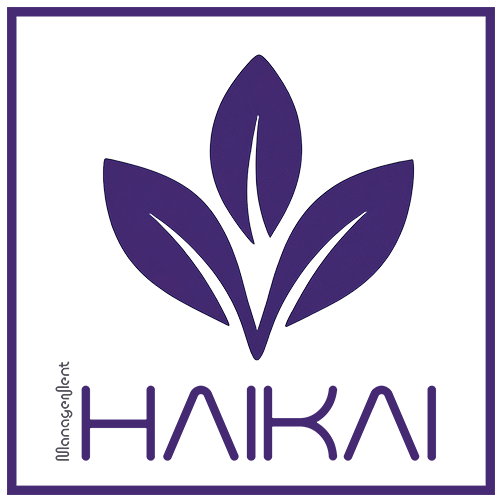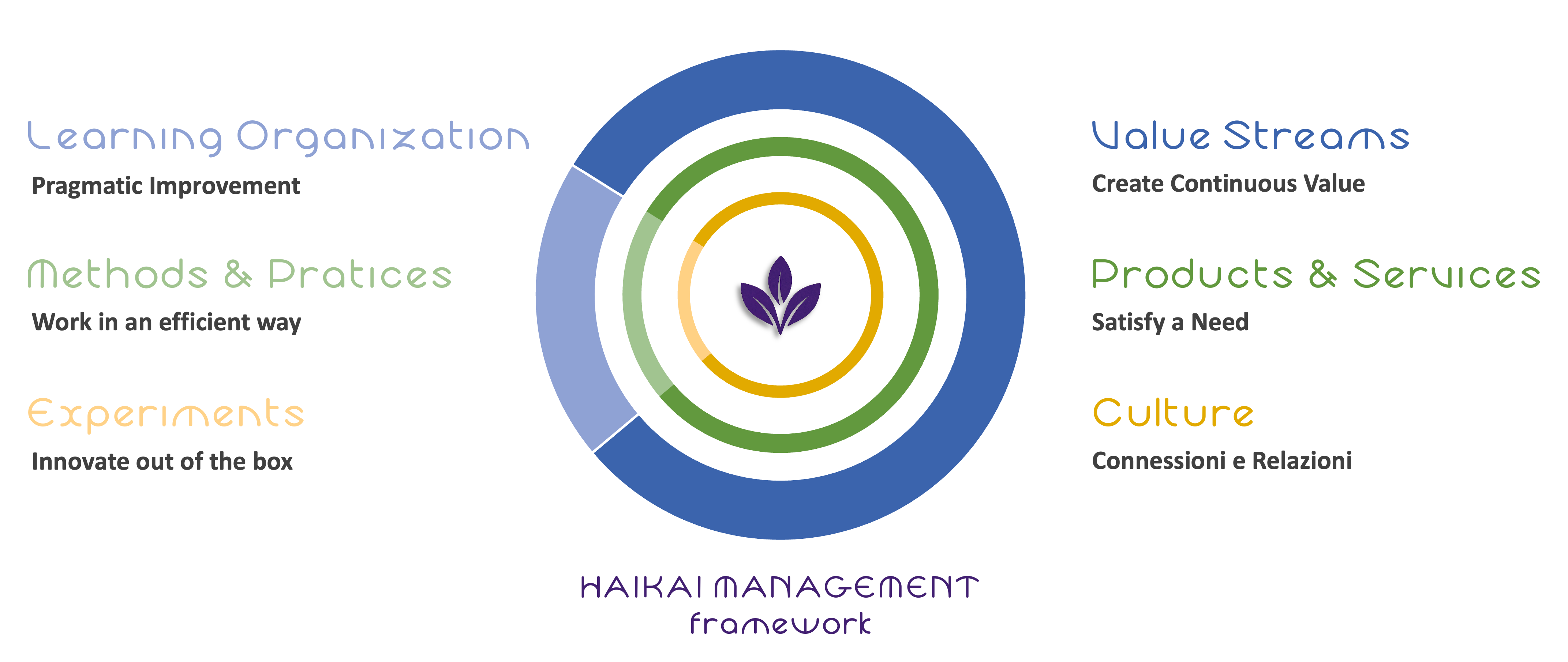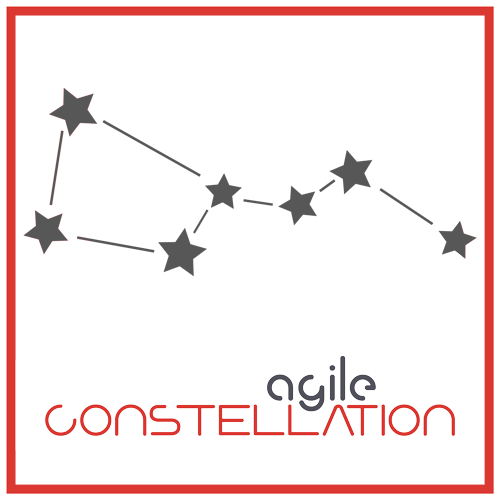
Haikai Management is the art of leading organizations through fluid harmony, adaptive intelligence, and the beauty of simplicity.
Inspired by the Japanese poetic philosophy of haikai, which celebrates the natural balance between different elements, Haikai Management proposes a new approach: synthesizing complexity, connecting people, technologies and visions in a natural way, making systems evolve as intelligent flows, never forced.
In a world where uncertainty is the rule, Haikai Management teaches how to orchestrate change with lightness and depth, transforming artificial intelligence, data and human thought into living and harmonious ecosystems.
It's not about controlling, it's about tuning in and evolving gracefully.
Through modern tools and evolutionary approaches, Haikai Management helps transform individual actions into a constellation of value, maintaining a constant pace towards evolution. The goal is to produce value for the reference stakeholders, creating quality initiatives capable of solving their needs. This takes the form of the ability to continuously adapt to changing conditions, from strategy to more operational aspects.
Initiatives can be of different types: from marketing actions to product development, so it is clear how fundamental it is to define a specific bouquet of tools adapted to the specificities of the business context. The pragmatic approach of Haikai Management leads to entering into the merits of things and appropriately evaluating which is the tool that best allows objectives.
The different initiatives are strategically managed through the Portfolio, which allows you to develop the big picture in a way that ensures that developments are aligned with strategic objectives and are executed efficiently.
A company could still pursue an initiative even purely in terms of Project, for example when it concerns an action to review internal processes or a research project, in the event that the deliverables produced cannot be considered as a real product.
When initiatives concern the development of Products, it is essential to emphasize that the following types can be related to:
- Off-the-Shelf Product:Ready to use, designed and manufactured to be adopted by a wide range of customers with minimal adaptations. Ideal for scenarios where business needs are common and standardized, avoiding custom development costs.
- Custom Product: tailor-made for a specific customer, with fully customized functionality, interface and logic. Suitable for companies that have special needs not covered by standardized solutions.
- Semi-Custom Products that combine elements of standard products with customization possibilities. Typically, there is a common basis that can be modified or extended to meet the specific needs of a customer or market segment.
To best achieve the goal, Haikai Management branches out into a framework that focuses on several specific areas of organizational management:

- Modern Project Management (ModernPjM): designing adaptive, iterative and intelligent systems, capable of evolving with needs and data.
- Modern Product Management (ModernPdM): building fluid, evolutionary experiences based on insights and perceived value.
- Modern Portfolio Management (PfM): Govern priorities and investments with dynamic flexibility, driven by predictive analytics and real-time feedback.
- Value Stream Management (VSM): integrating people, processes and technologies into ecosystems of harmonious and continuous growth.
- Modern Organization Design (MOD): developing and growing an organization that can learn and adapt.
- Modern Pragmatic Agile (MPA): development of a widespread agile-lean culture and operations.
A mature and robust use of Haikai Management requires the development of a broad knowledge of different approaches (knowledge), experience in their use (competence) and an understanding of how they can help in the specific context (pragmatism), continuously experimenting with a view to continuously finding new options and solutions.



